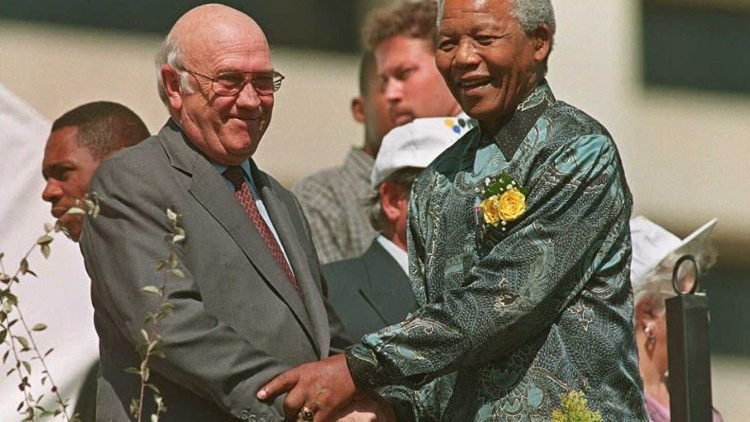27 April is Freedom Day: a public holiday in South Africa commemorating the first democratic elections in 1994.
By Francesca Merlo & Linda Bordoni
People across the world watched in awe as South Africans queued for kilometeres, waiting patiently for hours under the sun, in cities, townships, villages and wide-open spaces to cast their votes for the first time on 27 April 1994.
Thanks to the witness and leadership of Nelson Mandela, that vote brought an end to over 300 years of colonialism, segregation and white minority rule and to the establishment of a new democratic government and a new state subject to a new Constitution.
Freedom Day, marked annually on 27 April, also commemorates the liberation struggle that resulted in freedom and the recognition of dignity for all. As every year, the South African President leads a national thanksgiving celebration of South Africa’s years of freedom with a solemn ceremony.
But 28 years on, many South Africans are asking themselves whether it is a day to celebrate as too many citizens continue to suffer poverty, inequality and lack of rights.
Fr. Russell Pollitt SJ, Director of the Jesuit Institute South Africa, spoke to Vatican Radio about the woes that continue to afflict the nation and about the consequences of deep-rooted corruption in the political class and said that he doesn’t think many South Africans will be celebrating today.Listen to Fr. Russell Pollitt, SJ
The country, Fr Pollitt said, is obviously a changed place where everybody now has the right to vote. “But I think that in some ways, one could say the apartheid system has been replaced, 28 years later, with a system which is also disadvantaging the poorest of the poor.”
Corruption and disregard for human rights
It’s a system, he explained, of wide-scale corruption and looting, and citizens have no confidence in the South African government in terms of human rights.
In fact, he expressed his opinion that the legacy of human rights championed by Nelson Mandela, has been forgotten, and even betrayed as witnessed by a number of things that have happened in South Africa in the last 15 years.
Years, he explained, in which “the rights of especially very vulnerable people have been trampled on, and nothing has ever happened to hold people who executed these terrible things to account.”
The episodes he refers to include the killing of over 30 people by the police in clashes during labour protests by miners at the Marikana gold mine in 2013, and also the so-called “Esidimeni” crisis in which a number of people with disabilities, were moved by the Housing and Health Minister to other facilities, where many of them died of starvation.
Fr Pollitt also questions the nation’s “muted response to the conflict in Ukraine” and how “it is quite telling that South Africa is not prepared to take a strong stance against the human rights abuses that are taking place at the hands of the Russians in Ukraine.”
“So the question of human rights is one which I think is a very debatable question. South Africa has a wonderful constitution and South Africa has wonderful laws: The big problem is they’re not applied and they’re not lived by,” he said.
“There’s a huge gap between what we’ve got in the statutory books and the application on the ground.”
The Director of the Jesuit Institute also bitterly reflected on the large scale looting and corruption that has taken place during the crisis spurred by the pandemic, and pointed to “the recent firing or resigning of the minister of Health because his family benefited by him stealing during the Covid pandemic and basically stealing protection gear from the poorest of the poor.”
“This is just another example of how they either really couldn’t care!”
The fact, he explained, that the arrogant attitude of many who belong to the ANC government who “simply have their fingers in the state coffers and do as they please,” means that the poor are getting poorer in this country” while the political elite carries on living a high life.
It is a common perception that in 1994, South Africa was being built on moral high ground and the country’s reputation for human rights across the world was looked up to thanks also to the new “and wonderful” Constitution.
But, Fr Pollitt concludes, “I would say that now a lot of people in South Africa would say that generally, our government does not really believe in the human rights rhetoric they often use.”
“I think that the country’s stance on rights has not changed, but I think that the country’s willingness and ability to implement those rights [have changed], and there is a bigger and bigger gap between what we say and what actually happens.”



